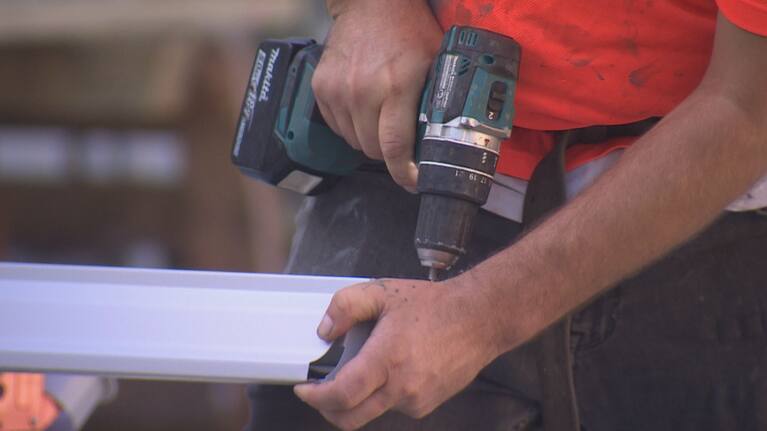Kiwis must "wake up" and "step up" to the shame of migrant worker exploitation happening in New Zealand, a Human Rights Commissioner says, as a new review slams parts of the Accredited Employer Work Visa scheme.
The human rights review of the scheme suggested it may be enabling human trafficking, systemic exploitation and modern-day slavery, going "beyond bad employers".
It recommended a slew of changes to reform the scheme and the system that brings migrant workers into the country.

Shortly after the report's release, Equal Opportunities Commissioner Saunoamaali'i Karanina Sumeo said New Zealand and the Government had a "duty" to those exploited.
The commissioner challenged the coalition to act on the issues as a new government.
She told Q+A: "There was little scrutiny of employers, little scrutiny of the process, and the pressure was to bring people in, and it was high trust.
"Clearly that trust has been broken. We've got people whose lives have now been destroyed, and some are stuck here. They've got to earn the money to go back home.
An independent inquiry into the work visa scheme was ordered last year, Corazon Miller reports. (Source: 1News)
"We've got these people who've come to help our economy, help our businesses. We can't just say, 'oh, it's someone else's problem to deal with'.
"As a nation, we have a human rights duty, to look after these people."
A February review of the scheme found a focus on meeting visa processing timeframes and volumes overrode migrant exploitation risk considerations at Immigration NZ.
It also found that when staff raised concerns about the risks, leadership at the organisation failed to pay adequate attention.
Last year, Q+A covered the plight of two workers in Hamilton who found themselves struggling to survive in New Zealand, having been promised steady construction work and high wages by an agent back in their home country.
'Why does it still continue?'
Sumeo said there was an obligation to help people return home if desired, but to also identify opportunities they can be channelled into, with skill needs in the workforce.
While the practice of paying a premium for visas was illegal, the practice was "widespread" with a lack of knowledge about New Zealand's laws overseas.
Q+A asked the immigration minister whether the worker allegations were a sign of a much bigger problem. (Source: 1News)
"It is a systemic issue, but it's not a new issue. We've had unions, migrant worker reputation, been talking about this for years. Why does it still continue?" she said.
"They are very, very vulnerable. They've been presented this opportunity go to New Zealand. We've got this great international reputation to be a fair and equal society where you'll be treated well.
"They buy that dream. They've been sold that dream, and they buy it - some for a lot more than $16,000 you just quoted to me - and they come here to be let down."
She added: "Here's an opportunity for the new minister, the new Government, who are very business supportive... let's put the onus on businesses to step up and do better in terms of the ethical recruitment, so that people don't continue to be treated in this way."
Employers found guilty could see managers disqualified and publicly shamed. (Source: 1News)
The commissioner said the practice of tying visas to specific employers should end.
She added that the original "high trust" model for the Accredited Employer Work Visa scheme should be a lesson for future policy development.
'We have to wake up'
"I think Kiwis are generally high-trust. We expect the best in good faith. We act in good faith. But when that has been broken repeatedly, we have to wake up.
"We have to wake up. And when we don't step up, it means that we are willing to endure the violation of basic human rights of people who come in service of our country, and that's not good enough," she told Q+A.

In response to the report, Immigration Minister Erica Stanford said she won't comment on specific findings or recommendations until she's had more time to consider it.
She said migrants who believe they're being exploited can apply for that Migrant Exploitation Protection Work Visa, so that they can find new work. Stanford hasn't ruled out further changes to the Accredited Employer Work Visa scheme.
Q+A with Jack Tame is made with the support of New Zealand On Air





















SHARE ME